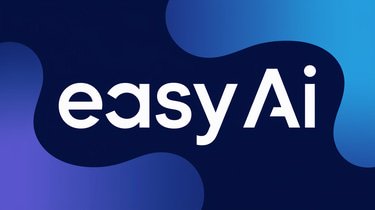SOLD: How Real Estate is Warming up to AI


AI continues to reshape industries across the board, and real estate is no exception. From intelligent chatbots that can schedule viewings to automation agents that can extract and prepare contract details with ease, artificial intelligence is flexing its mental muscle in the property market. For real estate professionals and clients alike, AI offers a game-changing toolkit that's revolutionizing how we buy, sell, and manage properties. One of the key components are virtual employees.
What Are Virtual Employees in Real Estate?
Virtual employees in real estate are AI-powered assistants that handle various tasks traditionally performed by human staff. These digital workers use advanced algorithms to interact with clients, manage data, and streamline operations. They're available 24/7, never take breaks, and can handle multiple inquiries simultaneously.
Chatbots are a common type of virtual employee in real estate. They engage website visitors, answer questions about listings, and can even schedule property viewings. Voice agents take engagement to the next level with their human-like qualities, managing incoming calls and making outbound calls to leads or clients.
By taking on part of the workload, virtual employees free up human agents to focus on high-value activities like building relationships and closing deals. They're not replacements for human agents, but powerful tools that enhance efficiency and customer service in the real estate industry.
Intelligent Chatbots
Let's focus for a minute on chatbots, which have become one of the most utilized forms of conversational AI over the past year. As with many other sectors, AI-powered chatbots in real estate have become a must-have tool for capturing and converting potential leads. These chatbots can answer questions about listings, property features, and neighborhood details in seconds, and as technology continues to improve, they've become the literal equivalent of having a 24/7 concierge residing your website, ready to help visitors instantly. In other words, AI turns your website from a simple information source into a member of the sales team.
But they're not just information dispensers. Intelligent chatbots can schedule property viewings and follow up with potential clients. They remember past interactions, making each conversation feel personal and tailored. Most importantly, they improve with each interaction, becoming more accurate and helpful over time. This means they can handle increasingly complex queries, freeing up agents' time for high-value tasks.
Chatbots also collect valuable data on visitor preferences and behavior. This information helps agents understand their clients better and refine their marketing strategies. With AI chatbots, you're not just responding to queries – you're building a smarter, more efficient real estate business.
Voice Agents
Taking things one step up from chatbots are voice agents. These AI agents come with ability to speak -- and not in some robot voice. They sound natural, convincing, just like a real person. They're polite, patient, and professional at any hour of the day, making them reliable. And using advanced speech recognition and natural language processing, they can understand and respond to callers effectively. This means your clients get quick, accurate responses any time they call. If you give them the ability to, voice agents can even schedule your appointments like a receptionist would.
Voice agents can also be trained to make outbound calls. They can follow up with leads, confirm appointments, or conduct satisfaction surveys.
Custom Automations
Paperwork is a necessary evil in real estate. But with AI, it doesn't have to be a time-sink. Custom automations streamline document processing, making it faster and error-free. They can pre-fill forms, route documents for signatures, and even flag potential issues before they become problems.
Integration with popular platforms like DocuSign takes efficiency to the next level. AI can automatically send contracts for e-signatures, track their progress, and notify you when they're complete. No more chasing down signatures or wondering about the status of important documents.
Think about all the repetitive tasks that eat up your day. Scheduling appointments? AI can handle that. Following up with leads? There's an automation for that too. Even data entry can be automated, ensuring your CRM is always up-to-date without manual input.
These automations aren't just about saving time. They're about improving accuracy and consistency in your work. By reducing human error and standardizing processes, you'll deliver a more professional experience to your clients.
Social Media Management
For most businesses, social media engagement has become a necessity. But it's also a huge time-sink. AI is fixing that by automating not only the management side of things but also content creation. I talk a little bit more about this in my post, How AI is Making Social Media Fun Again.
In short, AI can generate engaging content tailored to your audience, saving you time and effort. AI tools analyze trending topics and optimize your posts for maximum reach. They can schedule updates across platforms like Facebook, Instagram, and LinkedIn at peak engagement times.
These AI assistants craft compelling captions and hashtags that resonate with potential buyers and sellers. They can even create eye-catching visuals to accompany your listings. AI-powered analytics provide insights into your social media performance, helping you refine your strategy.
For blog content, AI can suggest SEO-friendly topics and keywords. It assists in writing articles that boost your website's search engine rankings. This increased visibility attracts more potential clients to your real estate business.
AI social media tools also help you engage with your audience more effectively. They can monitor mentions of your brand and respond to comments promptly. This consistent interaction builds trust and strengthens your online presence in the competitive real estate market.
The Hurdle of Getting Started
Of course, integrating AI into your workflow might feel challenging at first. You might worry about the learning curve or how it will affect your personal brand.
The key is to start small. Begin with one AI tool, like a chatbot for your website, and gradually expand as you get comfortable. Remember, AI is here to support you, not replace you. Your expertise, local knowledge, and human touch are irreplaceable.
By embracing AI, you're not just keeping up with the industry – you're positioning yourself as a forward-thinking agent who leverages technology to provide superior service. This can be a powerful differentiator in a competitive market. Clients will appreciate your efficiency and the personalized attention you can offer thanks to AI support.
Future Trends of AI in Real Estate
AI is set to reshape the real estate landscape even further. You'll see more advanced property valuation models that use machine learning to analyze market trends, local economic factors, and property features. These models will provide more accurate and dynamic pricing strategies.
Virtual and augmented reality powered by AI will transform property viewings. You'll be able to take immersive virtual tours of homes from anywhere in the world. AI will customize these tours based on your preferences, highlighting features you're most interested in.
Predictive analytics will become more sophisticated. AI algorithms will forecast market trends, helping you make informed decisions about when to buy, sell, or invest. These tools will analyze vast amounts of data, including economic indicators, demographic shifts, and historical property values.
As AI continues to evolve, it'll become an indispensable tool in real estate. That's why it's important to get started now on implementing it into your agency.
Implementing AI in Your Real Estate Business
When you're ready to bring AI into your real estate business, here's what to consider:
First, identify your pain points. Where do you need the most help? Maybe it's lead generation or customer service. Once you know, research AI tools that address those needs.
Next, find a solution. When choosing AI solutions, consider your budget and tech capabilities. Some tools are plug-and-play, while others need more setup. Look for AI that integrates with your current systems. This makes the transition smoother. Or work with a company like Easy AI, which specializes in AI integration and can handle the process for you.
Be communicative. Don't forget about your team. They're key to successful AI implementation. Start with small changes and gradually introduce new tools. Offer training sessions to help everyone get comfortable with the AI. Encourage feedback and address concerns promptly.
Remember, AI is here to enhance, not replace. Show your team how AI can make their jobs easier and more productive. With the right approach, they'll see the benefits of AI in your business.
What's Comes Next?
The future is hard to predict, but it's a safe bet that AI is not going anywhere. It is reshaping the real estate landscape, offering unprecedented opportunities for both agents and clients. And as Forbes discusses, AI is only going to play a bigger role in the real estate industry going forward. The time to adapt is now. Whether you're an agent looking to enhance your services or a client seeking a more efficient property experience, AI is your key to success in the evolving real estate landscape. Don't wait—start exploring how AI can transform your real estate journey today.
If you'd like to know how we can help your real estate agency integrate AI give us a call or book a free consultation. We're here to help.

